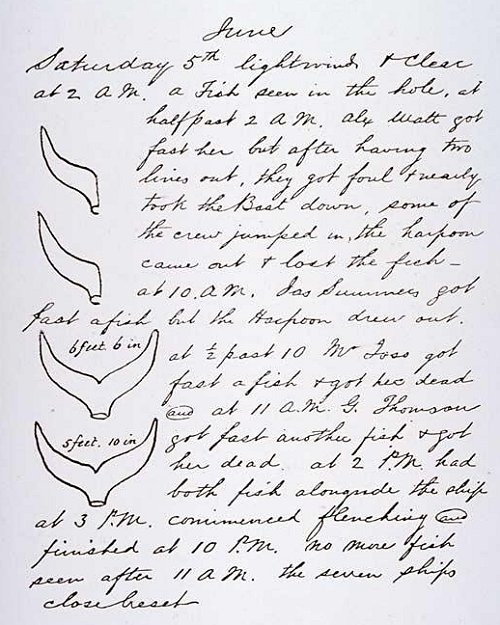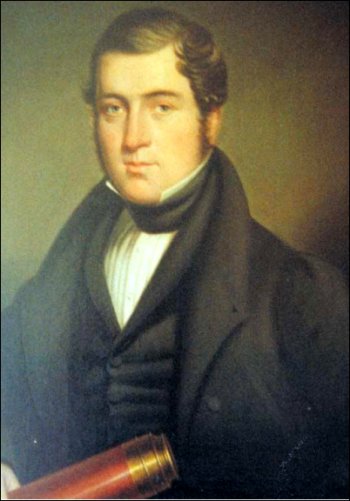The
captains of whaling ships generally kept detailed logs of the
whales that they saw and captured. These have been invaluable
to scientists trying to calculate the populations sizes and age
structures of whales in times past.
This
page for June 5th 1852 is from the log of the Peterhead
whaling ship Eclipse. This extract describes the chasing
and striking of a small group of whales. The successful capture
of a whale was always accompanied with the drawing of a whale's
fluke. The drawing of a half fluke represented an unsuccessful
strike or a whale shared with another ship. In one attempt, recorded
here, harpooner Alex Watt and his crew almost lost their boat
as their whale dived and took a line away. One whale is recorded
as measuring 6ft 6ins (2 meters). This would have been the length
of the whalebone in its mouth, the whale would have been about
15 meters long.

İSCRAN/Aberdeenshire
Council
Log of the whaler Eclipse
In
1852 the Eclipse was whaling in the Greenland sea under the command
of Captain John Gray (Sen.). Their harvest for the season was
5 whales and 2925 seals. Captain Gray, was one of Peterhead's
most celebrated 19th century Arctic navigators. He commanded the
Active from 1826-27, the Alpheus in 1828 and the
Eclipse from 1836-56. In this portrait he is holding a
leather and brass telescope, he was awarded for saving the crew
of the stricken ship Perseverance at the Greenland Sea whaling
in 1840.

©SCRAN/Aberdeenshire
Council.
John Gray (Sen.)